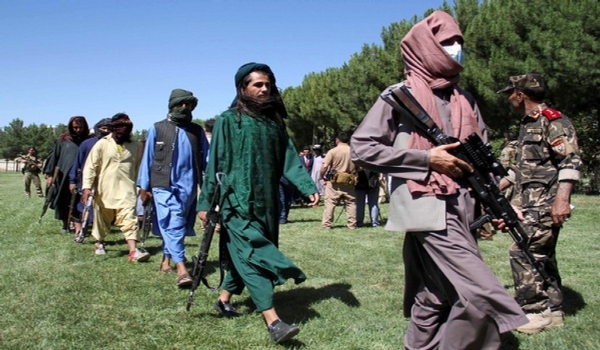Pakistan controlled JeM and LeT terror camps in Afghanistan: UN
The report also states that the Al Qaeda in Indian Subcontinent (AQIS) has between 180 and 400 fighters, including “nationals from Bangladesh, India, Myanmar, and Pakistan…located in Ghazni, Helmand, Kandahar, Nimruz, Paktika and Zabul Provinces”.
Total Views |
Islamabad, May 31: Pakistan-based terror groups Lashkar-e-Taiba (LeT) and Jaish-e-Mohammed (JeM) are present in Taliban-controlled parts of Afghanistan where they run training camps and have deep links with the ruling regime, including meetings at the top level, according to the latest report of the UN monitoring team on Afghanistan.

The report also states that the Al Qaeda in Indian Subcontinent (AQIS) has between 180 and 400 fighters, including “nationals from Bangladesh, India, Myanmar, and Pakistan…located in Ghazni, Helmand, Kandahar, Nimruz, Paktika and Zabul Provinces”.
However, it adds that while Al Qaeda “enjoys greater freedom under the new Afghan regime”, it is “unlikely to mount or direct attacks outside Afghanistan for the next year or two, owing to both a lack of capability and Taliban restraint”. The report cites a member state to state that “JeM maintains eight training camps in Nangarhar, three of which are directly under Taliban control”. LeT is “said to maintain three camps in Kunar and Nangarhar” and had “provided finance and training expertise to Taliban operations” earlier. “The same member state reported that in January 2022, a Taliban delegation visited a training camp used by LeT in the Haska Mena district of Nangarhar,” it states. “In October 2021, according to one member state… LeT leader, Mawlawi Assadullah, met with Taliban Deputy Interior Minister Noor Jalil,” it states. The report refers to JeM as a Deobandi group that is ideologically closer to the Taliban. “The leader of the group is Masood Azhar, and Qari Ramazan is the newly appointed head of JeM in Afghanistan,” it states. On LeT, the report notes: “Within Afghanistan, according to one member state, it is led by Mawlawi Yousuf.” The monitoring team assists the UN Security Council’s sanctions committee, and this report is it's first since the fall of Kabul in August 2021. Circulated among UNSC sanctions committee members, the report provides guidance for the UN’s future strategy toward Afghanistan.
At present, India is the chair of the UNSC sanctions committee, and Russia and UAE are the vice-chairs — the committee has all 15 members of the UNSC. The report also says that the Taliban “appear confident in their ability to control the country and “wait out” the international community to obtain eventual recognition of their government. According to the report, the strength of groups like ISIL-K has declined, and they are not believed to be “capable of mounting international attacks before 2023 at the earliest”.


